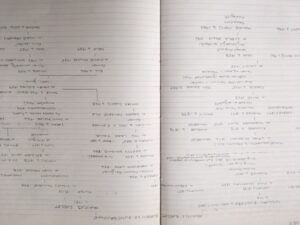Research for The Lost Heir continues – and Jane Cable puts pen to Papyrus
DIARY OF A BOOK… JUNE 2021
June can be instantly categorised as a month when I didn’t get as much work done on The Lost Heir as I’d have liked to. This was for a number of reasons including a long overdue trip to visit my father-in-law and the edits arriving for my first Cornish Echoes book, The Forgotten Maid. But they have now been done and dusted and a review copy is ready and waiting for anyone who wants one (hint!).
But of course that does not mean I have been entirely idle on the next book in the series. Indeed, I have actually put pen to paper. Or to Papyrus to be precise, because I use writing software.
 The first task with a new project is to set up the files. It’s not as complicated as it sounds – in fact you can just open a new document and get writing, but that isn’t using the system to its best advantage. In order to track your story and to keep your research together you need to use it properly. It’s an upfront investment in time that saves ages later.
The first task with a new project is to set up the files. It’s not as complicated as it sounds – in fact you can just open a new document and get writing, but that isn’t using the system to its best advantage. In order to track your story and to keep your research together you need to use it properly. It’s an upfront investment in time that saves ages later.
One of the great features of writing software (and I understand that Scrivener works in much the same way as Papyrus) is the ability to move scenes around. So the first thing I did was to set up my scenes in the organiser. Just a line or two, so I know what happens in each, then you tag characters, locations and important items into each one.
Every tagged item has its own file so you can record all the important details about it or them – in other words, I never need forget the colour of a characters’ eyes again. I know perhaps it sounds a bit unprofessional, but while I know their backstory inside out I do struggle to remember physical characteristics. I’m the same in real life – I can’t even picture the faces of those closest to me (apparently it’s a known syndrome) – so to have descriptions to hand is a godsend.
I also loaded in the research sources and notes I wrote about last month, but of course some have stayed in my notebook – like the detailed family tree I spent a couple of days constructing for the Basset family, which started with truth but quickly and necessarily descended into fiction. But for this particular story it was vital to get it right – especially as each timeline deals with one end of it.
 Alongside this I drew up some mind maps for my characters, and as I was planning to start writing in the present day timeline, took the contemporary protagonists further with detailed notes on their conflicts and emotional journeys. That done, I was ready to write the opening scene.
Alongside this I drew up some mind maps for my characters, and as I was planning to start writing in the present day timeline, took the contemporary protagonists further with detailed notes on their conflicts and emotional journeys. That done, I was ready to write the opening scene.
I always find it helps to play with your story a little before you settle down, and I know much of what I’ve written so far won’t make the final cut, but it helps me to establish people and places in my own mind. Some of the minor characters even surprised me a little, which is always good, and this is the point to open my heart and mind and listen to them. After all, The Lost Heir will be their story more than it will ever be mine.
There are still some loose ends to tie up before I get stuck into writing the 1810 narrative, largely driven by two more research books which have just arrived from the library. And then the exciting part can begin.

